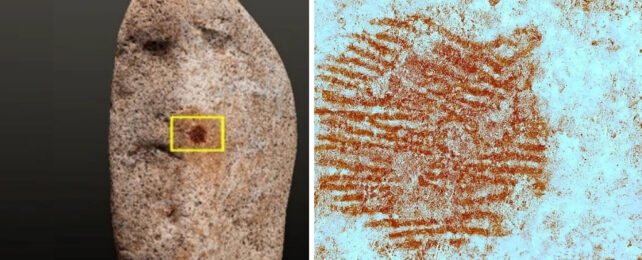Around 43,000 years ago, a Neanderthal dipped their finger in ocher and stamped the very center of a pebble.
This one small marking on this one small stone still exists to this day. It was discovered in 2022 in the San Lázaro rock shelter of Central Spain, and it may be the world's oldest complete human fingerprint.
More than that, it could also be one of the oldest known artistic representations of a human face.
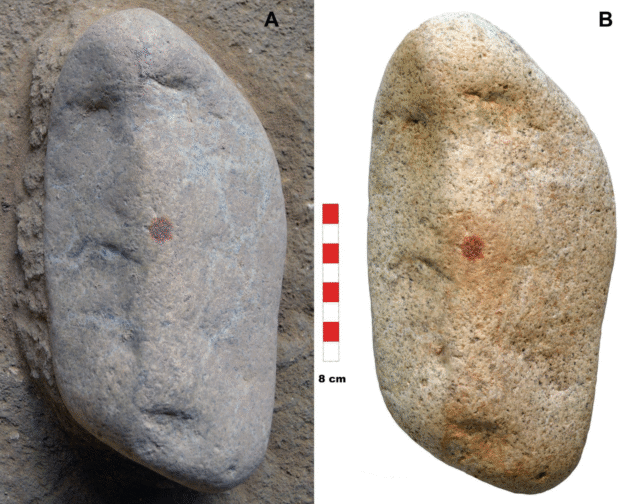
That latter claim remains controversial, but the red fingerprint does sit in the very middle of the pebble, below two divots and above another – an artistic 'boop' right where a nose should be.
On site, the face immediately jumped out to archaeologists, led by David Álvarez-Alonso at the Complutense University of Madrid.
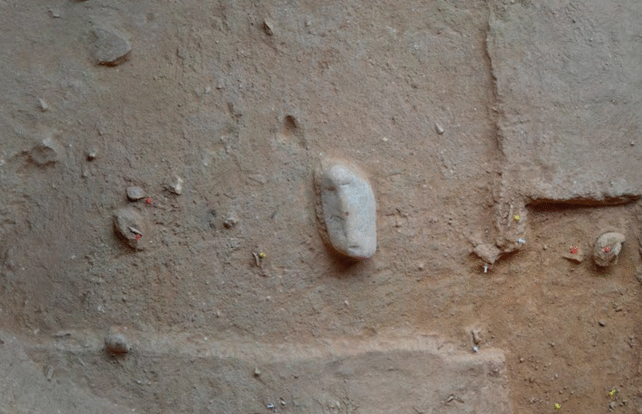
If the team is right, this stone was probably carried from the nearby river to the San Lázaro rock shelter.
The Neanderthal who selected it must have seen something special in its shape to take it home and paint it with ocher, especially as it seems to serve no functional purpose and no other ocher has been found at the site.
"The ocher dot does not appear as a shapeless addition or a mere stain," explain the authors, "rather, it contains a fingerprint that implies the pigment has been applied specifically with the tip of a finger soaked in pigment."
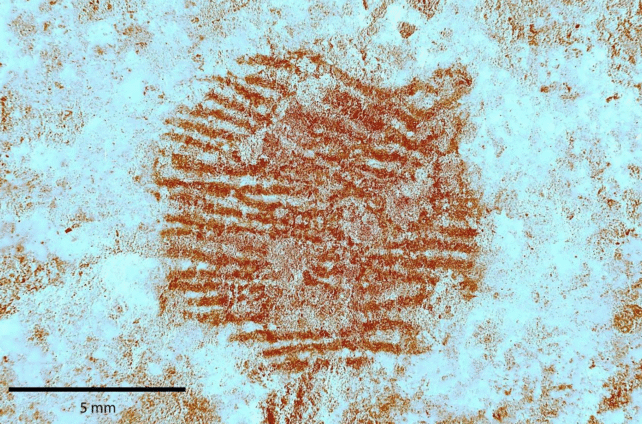
There's always a chance the print was made by accident.
But Álvarez Alonso and colleagues think it is more likely the marking was an intentional act of imagination and symbolic art – a skill we have only just started giving Neanderthals credit for.
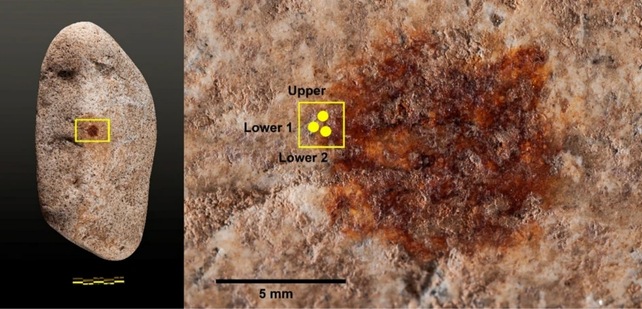
"If we had a pebble with a red dot on it that was done 5,000 years ago by Homo sapiens, no one would hesitate to call it portable art," Álvarez Alonso told Sam Jones at The Guardian.
"But associating Neanderthals with art generates a lot of debate. I think there's sometimes an unintentional prejudice."
The study was published in Archaeological and Anthropological Sciences.
